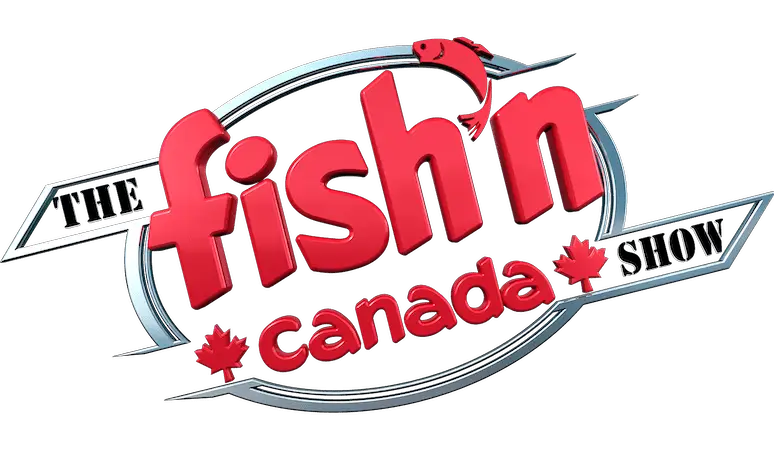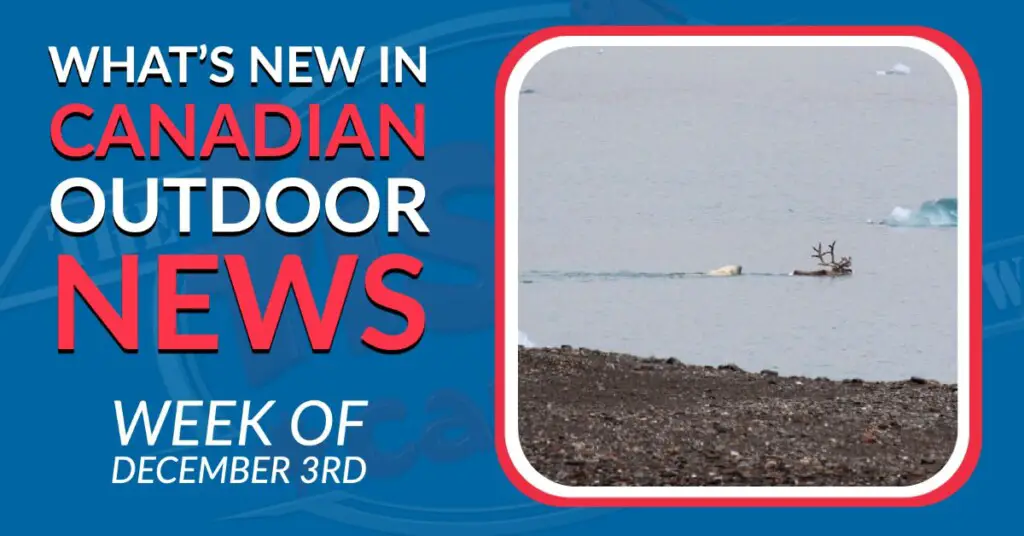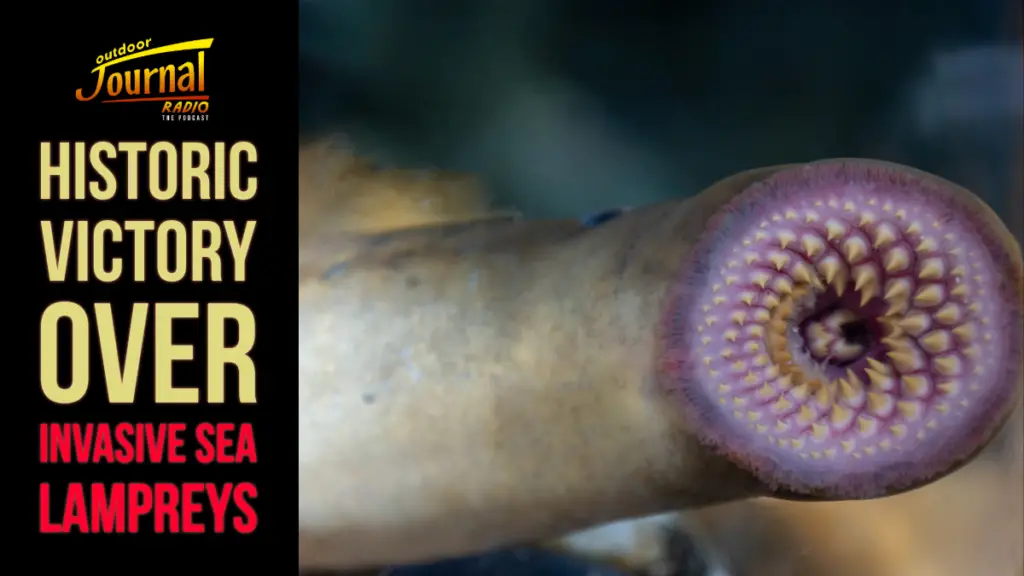The Stories that Matter and the Fuel to your Bar Banter – Canadian Hunting and Fishing News from the Week of December 3rd, 2021
Although news has never been so abundant, finding relevant and reliable stories has never been more difficult. Thankfully, Fish’n Canada has you covered. From Reindeer diets to Lamprey debts, here is everything you missed this week in the world of Canadian fishing and hunting!
1 – Canada called out for not pulling weight in Sea Lamprey eradication effort
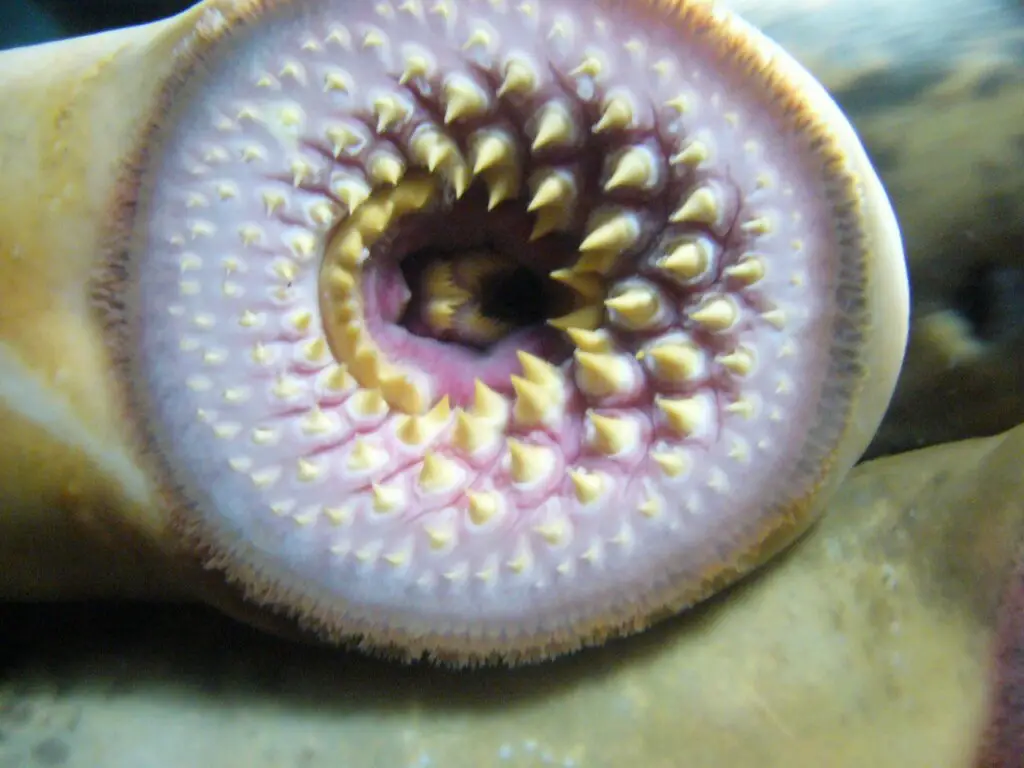
Our first story of the week takes us to Michigan where Canada is being called out for its shrinking role in the Sea Lamprey eradication program.
According to Points North, a weekly show from Michigan dedicated to the state’s Great Lakes region, Canada has not been living up to the spending agreement laid out in the Great Lakes Fishery Commission. This treaty, signed back in 1955, established a set amount that each country would contribute in order to successfully fund the eradication efforts, 69% of it being covered by the United States and 31% being covered by Canada.
This year, however, Canada is currently contributing less than half of what it once agreed to, providing just $7.9 million out of the $16 million that was owed.
As mentioned in a previous article, Lamprey were once exclusively an American issue, entering Michigan’s Finger Lakes in the late-1800s and remaining south of the border as long as Niagra Falls could hold them back. Since the construction of the Welland Canal in the early 1900s, however, these pests no longer recognize the border and can now be found from St. Thomas to Salut Ste. Marie.
Thankfully, the issue is now much more under control in many of the areas where the invasion has occurred thanks to a combination of barriers and “lampricides” that have reduced numbers down to manageable levels – but US biologists are warning Canada not to get too comfortable just yet. As of right now, Lake Erie, Lake Huron, and Lake Superior have more lamprey than the commission’s initial target. Furthermore, Canada has now been reducing their funding for the project for the last 15 years, relying on the US for 100% of its “lampricide”.
According to US officials, Canada’s prioritizing of this project and their fulfillment of the $16 million would be enough to go on the offensive in the fight against invasive lamprey, and no longer have to rely solely on the reactionary defensive measures we have been focused on for the last 100 years.
What do you think Canada should do? Let us know in the comments below!
2 – Polar Bears’ diets are changing and Reindeer are now on the menu
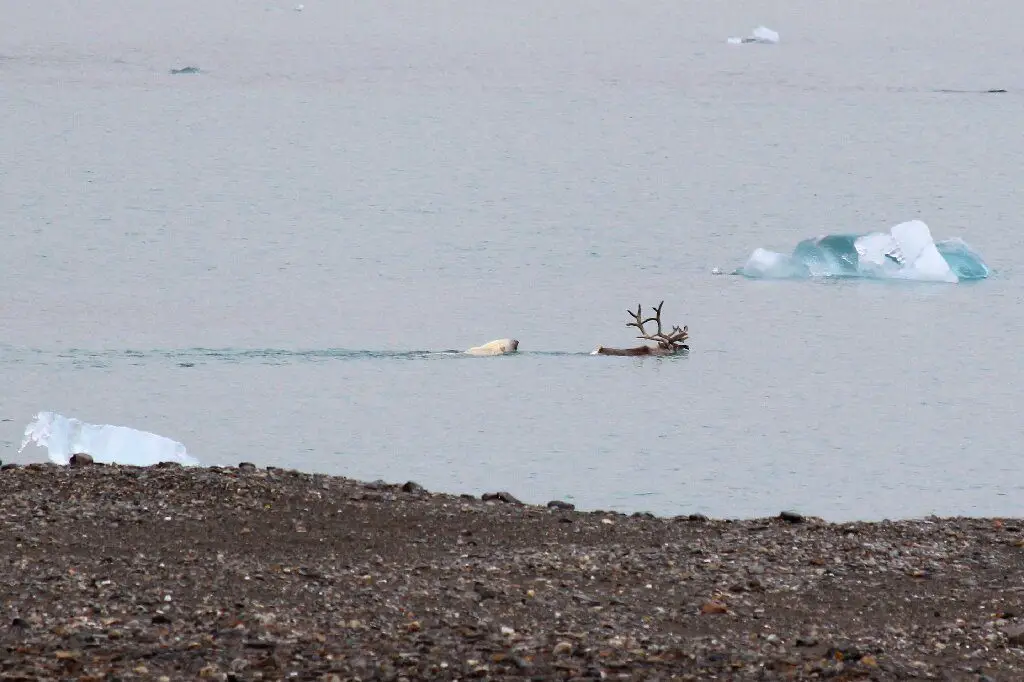
Our second story this week is far from Canadian, but what better time to cover a Reindeer story than in December.
Perhaps slightly different than the traditional Reindeer stories that are told this time of year, this story from Svalbard (a Norwegian island just 1,000km from the North Pole) suggests that these festive animals may be becoming part of the Polar Bears’ regular diet.
Although these animals are often linked together due to their northern climates, the two crossing paths is actually rather rare. According to Phys.Org, however, this is now beginning to change.
The reason for this change can be linked to two factors – climate change and a lack of hunting pressure.
Starting with climate change, melting sea ice is the primary factor as Polar Bears are now stranded on land for much longer periods of time. This has forced them to add land mammals to their typically seal-heavy diets. Coinciding with a growing Reindeer population due to a recent hunting ban, these animals may make for the perfect seal replacement if climate trends continue and bears continue to be forced further inland.
Here in Canada, this push inland has had a much different effect, leading to an interesting hybrid species known as the Pizzly Bear. For more in this story, follow the link below:
3 – BC scientists are running out of salmon to study, the Great Lakes could be the answer
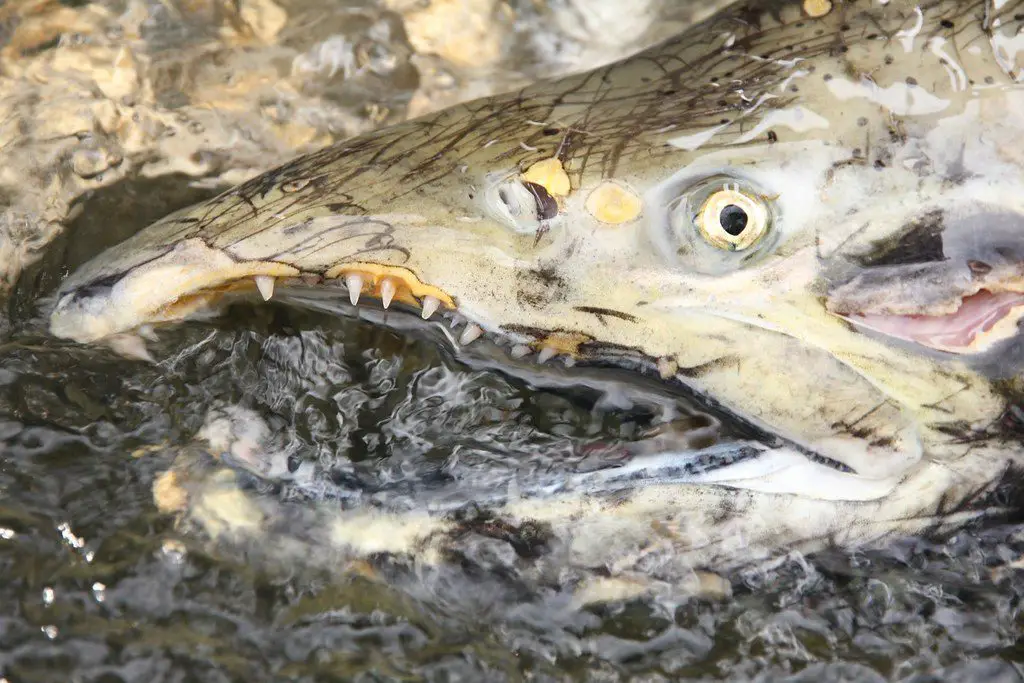
Over the last few months, we here at Fish’n Canada have been extensively covering the decline of salmon and steelhead in British Columbia – and now, the numbers may even be too low to support proper research.
According to Carleton University biologist Steven Cooke, via Hakai Magazine, the situation in BC is “at the point with some populations where we have to be hands-off. We don’t want to study them to extinction.”
With the situation out west seeming to worsen by the year, Canadian biologists such as Cooke are now beginning to switch their focus to the Great Lakes where salmon populations have begun to thrive. Stemming from stocking efforts conducted in the 1960s, these lakes are now home to thriving populations of Chinook and Coho Salmon, the exact species we are hoping to see revived in the west.
While researchers are encouraged by the rise in the Great Lakes population, they do also acknowledge that these Great Lakes residents are not perfect comparisons. For starters, the migration patterns are much different, with the run from Lake Ontario to its tributaries just a fraction of what a salmon in the Fraser might carry out in a year as it heads back from sea. Additionally, the absence of large saltwater predators, such as Orcas and Seals, will likely also limit how much information can be gained from the predator-free “Kings” of the Great Lakes.
That being said, researchers are still hopeful that valuable information can be gained from these lake-bound populations and use the stable numbers of fish to allow us to better understand the collapse that is currently taking place out west.
4 – More Wild Boar found near Pickering, Ontario
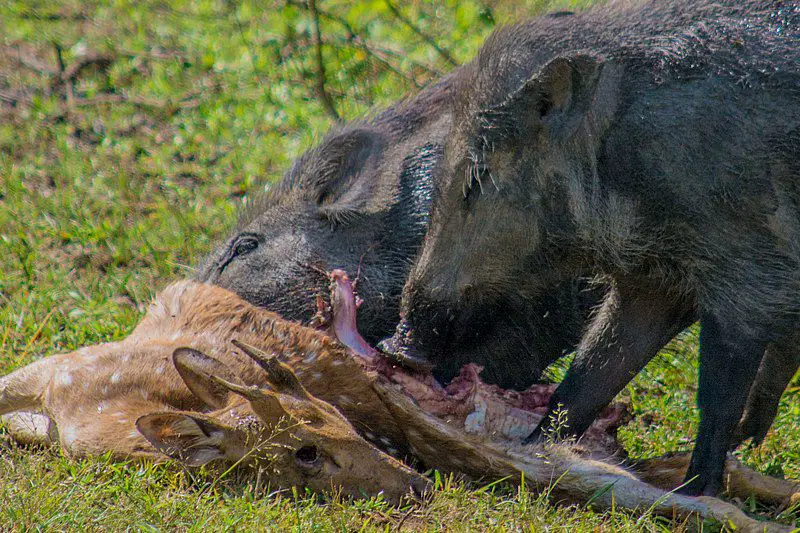
In what as become a theme over the last month or so, Wild Boar have, yet again, been spotted in the town of Pickering, Ontario.
As we covered a few weeks ago, a herd of 14 Wild Boar was spotted roaming a rural road just outside of the town of Pickering, quickly prompting the Ministry to get involved. Despite the quick response, however, it appears that the herd is still evading capture.
Trapping efforts are still underway but no success has yet been reported. It also appears that the few members of the herd are juvenile, however, officials are assuring that the pigs were farm-born and are not yet reproducing in the wild. Until the situation is resolved, the Ontario government is urging those in the Pickering area to report any Wild Boar sightings at [email protected] or 1-833-933-2355.
For more on the Pickering sightings, as well as information on how these pigs are spreading throughout Canada, check out our previous article in the link below:
5 – Ice fishermen can face manslaughter charge for drilling holes in a frozen lake
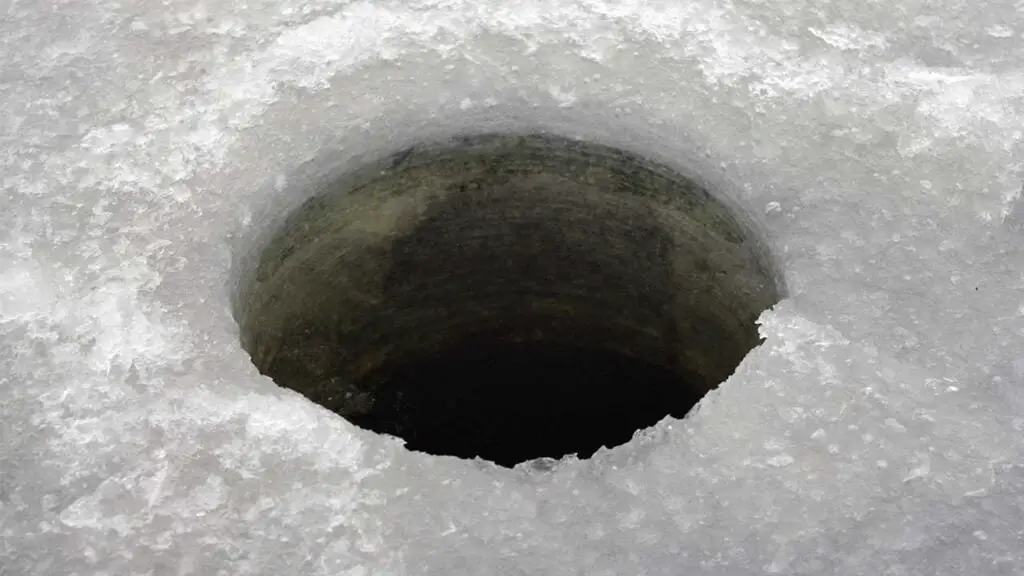
Our last story of the week may not be new, but always deserves attention as the hardwater season rolls around.
A few years ago, the CBC Reported that drilling a hole through the ice could result in legal charges. Section 263 of the Criminal Code notes that:
“Everyone who makes or causes to be made an opening in ice that is open to or frequented by the public is under a legal duty to guard it in a manner that is adequate to prevent persons from falling in by accident and is adequate to warn them that the opening exists.”
Everyone who fails to perform a duty imposed is guilty of
(a) manslaughter, if the death of any person results therefrom;
(b) an offence under section 269, if bodily harm to any person results therefrom; or
(c) an offence punishable on summary conviction.
In the past, this section of the Criminal Code has led to warnings in Alberta, where a Conservation group expressed concerns that serious charges could arise if someone were to accidentally fall through the ice.
Of course, this law is not something that the everyday ice angler needs to worry about, as very few are going to be capable of falling through an 8-inch hole. However, for those carving out livewells or chainsawing trenches into the ice, this law is something to keep in mind as an accident could result in serious legal repercussions.
For the full story, check out the link below!
Have a story we missed? Send us an email at [email protected]


